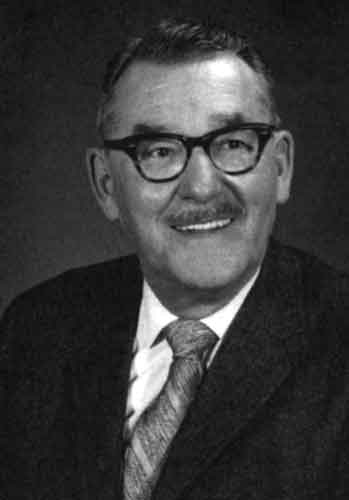
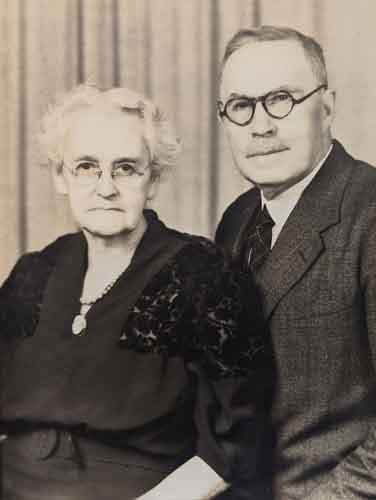
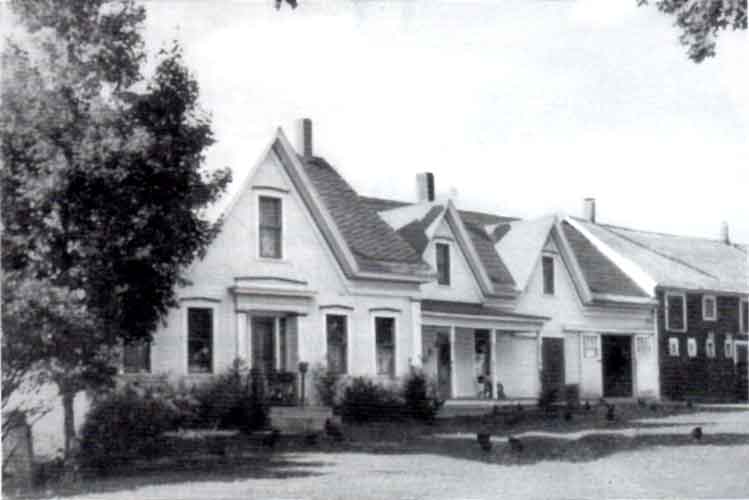
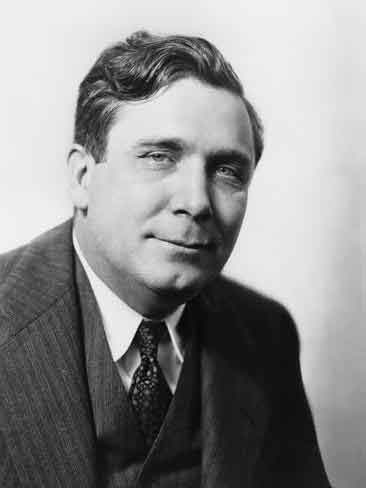
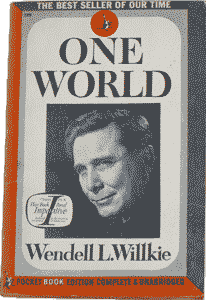
My father came from a family of nine children. I think he was third or fourth. Something like that.
My father was not all that active. At least I didn’t think he was all that active during my formative years, if you can consider formative through grade school, high school, or even college. He had been a lawyer or judge. His father was probate judge. That would be E. R. Davis. That would be my grandfather.
My father bought a farm up on East Hill. He was a gentleman farmer, and I was a slacker who didn’t like to work on a farm—listen to Red Barber announce the Brooklyn Dodger baseball games rather than go out on a hay wagon. But I did some of it. He was happiest, truly happiest, when he was out alone feeding the horses, grooming the horses, or shoveling the horse manure out of the pen. That’s when he was happiest—and looking at the mountains. And he loved the state.
He had opportunities. I think he could’ve been on the Federal Reserve Board. But that meant leaving Vermont. It meant leaving the horses. He said, the one big regret he had in life was that he never bought a lot of land. He felt that that’s where value lay. And when you think about it and go back to when our ancestors came over from England, they came for land. They didn’t come for anything else. The problem was, if you were the fifth son, there wasn’t much land left, and then you had to go find some more land.
My father went to Boston University Law School. He did not go to Boston University. And he got a law degree. But he did not have a university of degree, a BA or anything like that. And then he put up a shingle in Barre. And his father was a lawyer here in town–later State’s Attorney and then sometime down the road a probate judge for many years.
My father was liked because he represented two wings of the Republican Party: to some extent the business side of the Republican Party, but I think he also represented the old Vermont, rural Vermont, and that played out well with all his work on the environment, Act 250 and related legislation regarding the environment.
My father was no flaming liberal. On the other hand, he was a lawyer, and he was a fair-minded person. He became General Counsel to the National Life Insurance Company and then President. And we sold the farm. He bought the farm around, about 1940. We sold the farm in 1945 or 6. My mother wasn’t terribly healthy at that point. She died of cancer three years later, four years later, which was another huge effect on my life and probably had something to do with my alcoholism.
My father was kind of one of these guys behind the scenes, and they are always asking them to run for something. He might have gone to the Republican convention once or twice, the nominating conventions.
My father in the last analysis believed in small government, believed in local control in the best sense. But in fairness to him, he also was rational. He wasn’t ideological. I think even his Democratic enemies would say that. My father came from the farm mentality of economics. In other words, you do it yourself or you don’t do it. He was very generous personally.
And my father was State’s Attorney, and among his job as State’s Attorney one time, of course, was enforcing Prohibition in Barre. Prohibition in Barre is again a subject of its own for the simple reason that because of granite industry and the dust associated with it, Barre’s incidence of silicosis, tuberculosis, and associated lung diseases was skyrocketing. Most men who worked in the sheds died before they were 45. This left widows with no Social Security or any other benefits. So what they did is open boarding houses and sold liquor at the kitchen table. But my father’s job was enforcing the law, and he had mixed feelings about that for the simple reason he understood that the only way these women could survive was by selling liquor and selling rooms in their homes.
My father had a wealth of stories, most of which are not recorded anywhere. For example, he hired a private detective, so to speak, who would go in to catch somebody with liquor. The liquor was on the shelf next to the sink, and the minute they walked in the door the liquor was down the sink and the bottles were broken, and there was no evidence.
Another time he was following this guy through the hills of East Calais, possibly a back road of some sort toward Canada, which is where the booze came from mostly. And my father got stuck in the in the mud with his car. Well, the car that he was following, wherever it went, it went and turned around and was coming back and saw my father. So the bootlegger pulled my father out of the ditch. So there was kind of a strange relationship between the law and the distribution of alcohol at that time.
My father was a Republican. I remember vaguely, “Landon and Knox, shall fall on the rocks, but Roosevelt and Garner shall fall in the sea.” I learned that at the age of five or six years old, and it shows what great retentive powers I have.
My father used to [?] Roosevelt, but he never seemed terribly angry about him. He would call him, “That man.” That was fairly common. And he would read literature that made fun of Eleanor Roosevelt, which was common at the time. I think some of the resentment of Eleanor Roosevelt was the same kind of resentment women get today. I credit her a lot for that.
My father became quite an admirer of Roosevelt and how he conducted the war. It was probably thirty-five years or forty years after the actual events. I can remember him saying things like, “I’m beginning to have second thoughts about this Roosevelt fellow.” That was quite a switch, because my father was a Republican from the tip of his toes to the top of his head. But he was also a lawyer, very strong on the rule of law. And yet he was a Nixon loyalist ‘til the very end. I never understood that. I never confronted him on it at that time because Nixon’s crimes were . . . . And they’re still coming out all these years later. But the fact was that my father met Nixon, liked Nixon, thought he was bright, and of course, the fact is, Nixon was bright. The problem was, he wasn’t, apparently, principled.
I didn’t know my father was going to run for governor until I visited one day in 19 . . . . I forget the year. But I remember seeing a picture on a poster which looked suspiciously like a campaign poster, although there was no writing on it at all. And I said, “You running for governor?” And he hedged, and I figured I had it right. And I did.
He had to learn a lot about politics. He had to learn a lot about Vermont, despite the fact that he was brought up here, practiced law. When I was young, occasionally would travel to a . . . . He’d be invited to speak to a rotary club or a town meeting or something somewhere. I remember going on a dirt road over the hill in the old days through Woodbury and up to Hardwick, in the old town hall there. I remember him speaking there. It was there, I think, I noticed that his voice would change slightly. The Vermont twang would appear, subtly. And if you listen closely to politicians, some of them have that knack of suddenly becoming part of who they’re talking to.
Most of all he believed . . . . He used to tell the kids, “I don’t care what you do as long as you read one hour a day. Read anything you want.” And everybody in the family, including my mother and sister, were readers. And so was I. So we read a lot, a lot of different stuff.
Wendell Willkie came to our house one time. I wasn’t there. I think it was after ’44. My father fell in love with Willke. He really liked his book, One World. So Willke came to the house. I guess he was thinking of running again. My mother couldn’t stand him because he swore too much and he drank too much. So that was Willke’s undoing.
